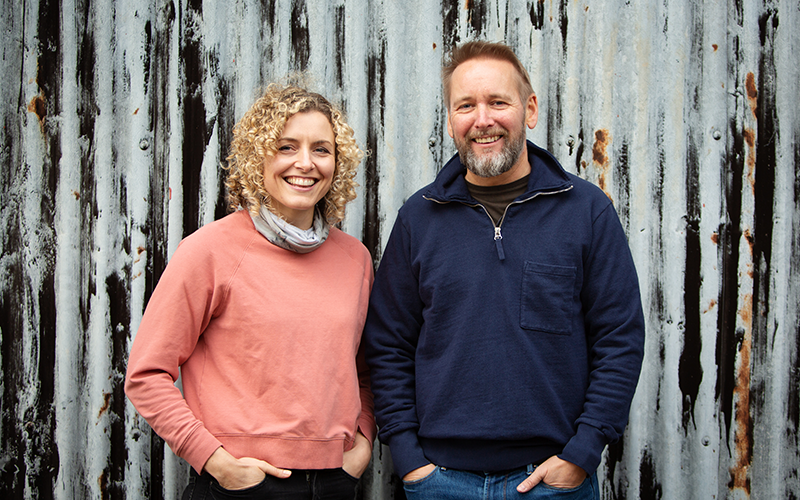
Q&A with Kenny Goodman, co-founder of fast growing Hip Pop
Raising capital is one of the biggest roadblocks faced by today’s entrepreneurs. Not only are bank loans very hard to get for many, but risk capital investors can expect high growth and rapid exit, which are not options for a huge majority of businesses. Despite these challenges, Manchester Kombucha business, Hip Pop, has achieved impressive growth since launching just three years ago thanks to its successful investment strategy.
Here, co-founder Kenny Goodman shares how the brand has been able to raise capital in a way that fits with its unique business model and long-term goals, and his advice for other small businesses currently on the journey.

What has been Hip Pop’s experience raising capital since inception?
Borrowing money [raising debt] as a startup can be very difficult and comes with its own risks.
We've been able to secure some asset finance based on equipment purchases, but most of our raise has come from investment achieved by selling equity. It's a lot harder than you think so buckle in and get ready for a bumpy ride.
What would you say has helped you the most in raising the funds needed to make the business a success?
We’ve learnt first-hand the importance of having a clear investment strategy supported by a solid investment deck that succinctly tells your story.
You need to be able to demonstrate the clear opportunity for investors and why they should trust you with their hard-earned money. This will give you the confidence to approach investors and pitch to them.
In your experience, what are the main challenges small businesses tend to face when trying to raise capital?
For us, the main challenge was getting clear on who our ideal investor was and then getting the first one over the line.
We decided to go for individual ‘angel’ investors rather than institutions. This was due to speed but also most institutions saw us as too small and asked us to come back on the next round.
The more investors you get on board, the easier it becomes because it offers reassurance to the other potential investors.
What advice would you give to another small business to help ensure they get the capital they need, when they need it?
Securing investment is a massive learning curve that becomes a full-time job and takes many months and sometimes years. That’s why it’s important to manage your expectations when setting out.
You don't want to be in a desperate place when raising investment so planning early is key. If there is more than one founder, decide who the best person is to run with this, otherwise it will suck everyone's energy and affect the business performance, making you a less attractive investment.
How can businesses determine which is the best solution for them to raise capital, for example borrowing vs seeking investment?
It depends on the business’ appetite for risk. It's always best to keep your own equity and raise debt if the interest rates are low enough, but debt usually comes with the risk of security which can involve personal guarantees - essentially putting your home on the line.
What would you say is key to a successful crowdfunding campaign?
“We've only ever done Kickstarters rather than equity crowd funding, but the main thing you need to succeed with either is a strong customer base who love you enough to support you in your raise.
What role has your advisory team played in helping raise capital and how integral has this been?
Our advisory team has been critical in the process by providing guidance on things like valuation, but also adding credibility to the business and investment opportunity.
Do you have any plans for raising additional capital in the future?
Yes, we are currently looking to raise again for an exciting new opportunity that has presented itself to us.
We think it will be very attractive for investors as it provides a revenue stream with very little effort on our side.

